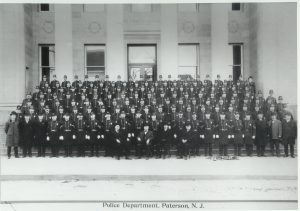New Jersey Employment Law Decision Explains that Teacher Cannot Wait Until After Conclusion of Certificate Revocation Proceedings to Seek Reimbursement from Board of Education
One of the most difficult New Jersey employment law issues confronted by government employees is that they are sometimes drawn into legal action because of actions taken in the course of their employment. Defending such charges can cause significant expense and hardship to government employees. For teachers, administrators and other public education employees, however, there are two laws which provide for payment of the employee’s attorneys fees and litigation expenses by their board of education in certain criminal, quasi-criminal, administrative and civil legal actions. The Appellate Division examined the question of when an employee must notify their employer and request payment under the two different statutes in a case where the New Jersey State Board of Examiners sought to revoke an employee’s teaching certificate in the case of Maria Azzaro v. the Board of Education of the City of Trenton.
hardship to government employees. For teachers, administrators and other public education employees, however, there are two laws which provide for payment of the employee’s attorneys fees and litigation expenses by their board of education in certain criminal, quasi-criminal, administrative and civil legal actions. The Appellate Division examined the question of when an employee must notify their employer and request payment under the two different statutes in a case where the New Jersey State Board of Examiners sought to revoke an employee’s teaching certificate in the case of Maria Azzaro v. the Board of Education of the City of Trenton.
Background: The Order to Show Cause and Administrative Litigation
Maria Azzaro worked for the Trenton Board of Education. The New Jersey Department of Education, Office of Fiscal Accountability and Compliance alleged that while Azzaro was a vice-principal at Trenton Central High School improper practices occurred including misassignment of students, giving students credits for classes they did not attend or attended only sporadically, that certain classes did not meet Department requirements, and that transcripts were falsified so that students could matriculate. As a result, in 2007, the New Jersey Department of Education, State Board of Examiners served Azzaro with an Order to Show Cause seeking revocation or suspension of her teaching certificate because she allegedly knew of or participated in these practices.
 New Jersey Lawyers Blog
New Jersey Lawyers Blog


 und
und Solutions U.S.A., Inc
Solutions U.S.A., Inc with any remedy? Fortunately, New Jersey
with any remedy? Fortunately, New Jersey 
 These effects impact both
These effects impact both  New Jersey appellate decision in the case of
New Jersey appellate decision in the case of 